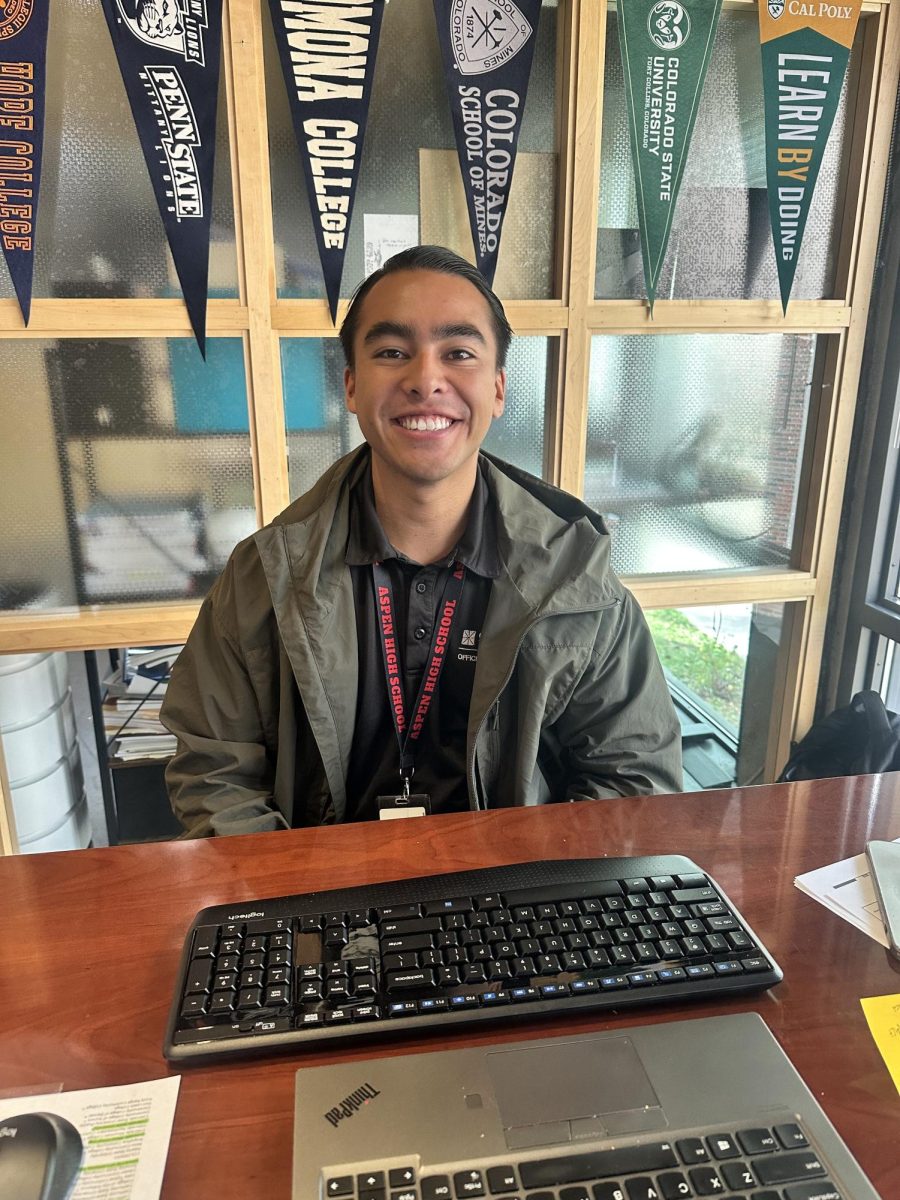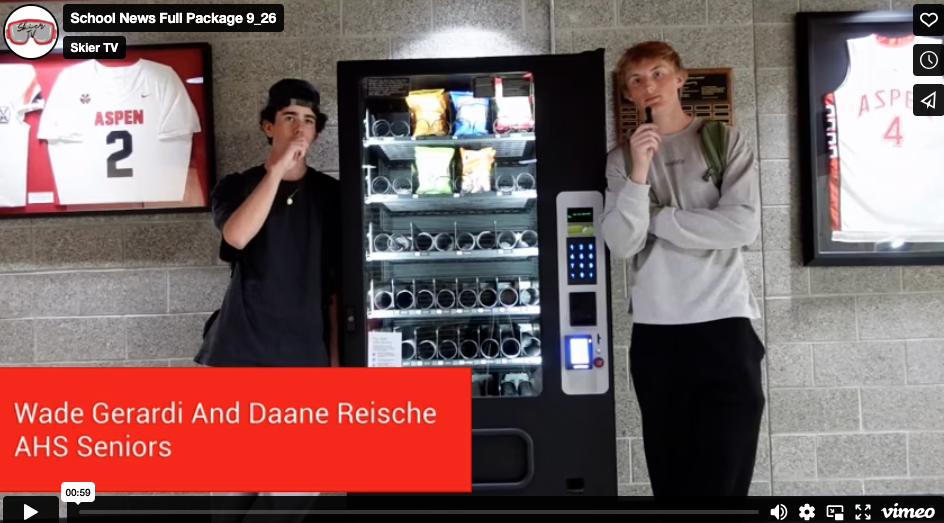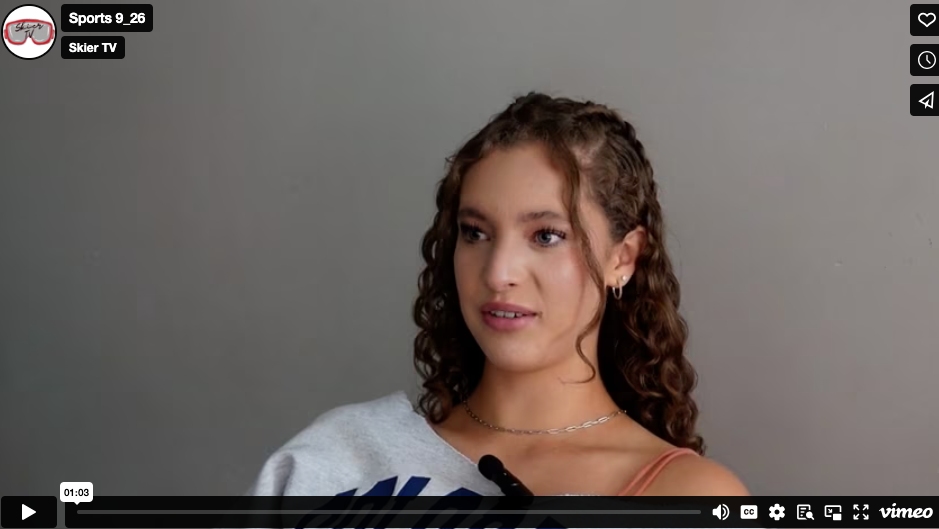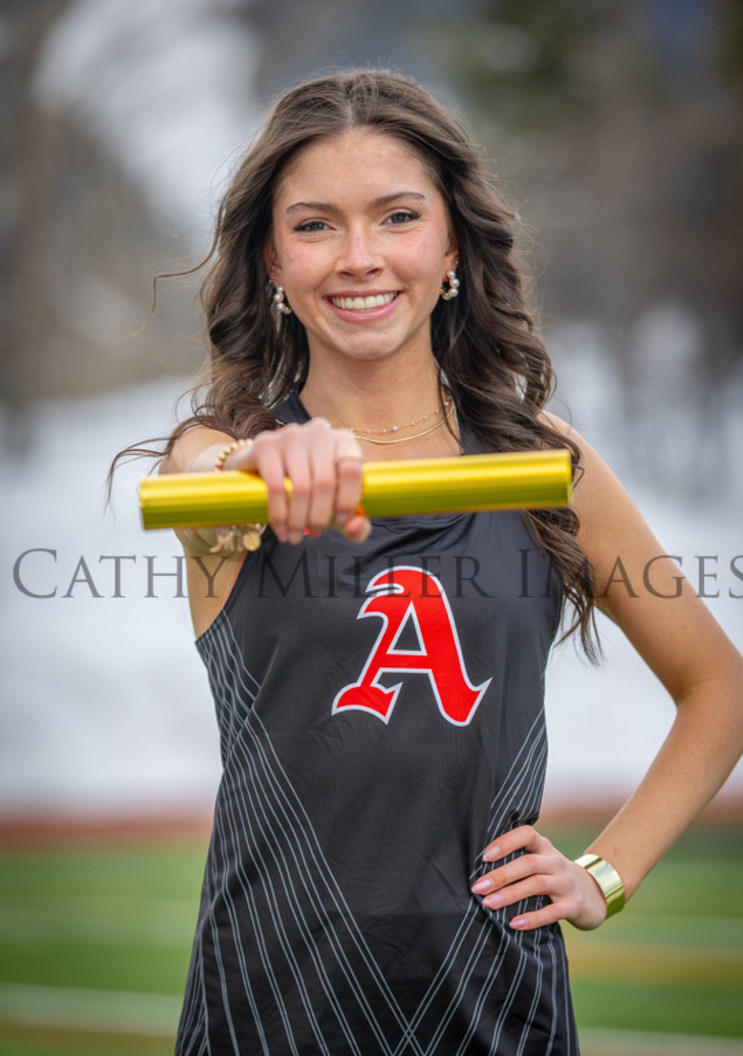One of the many topics of debate in the presidential election is whether the state of democracy in the United States is in jeopardy. The Aspen School District sees the democratic process through the election of members of the Board of Education as well as in its own schools’ student senate selections.
Democracy in part is about bringing different voices to the conversation and can involve compromise and solution-finding. The democratic process also can be seen playing out in the student liaison program, led by Tameira Wilson, which allows two students per grade to attend and have an active voice at school board meetings. Each liaison’s term starts at the beginning of their junior year and lasts until the end of their senior year. The liaison’s job is to share student voices and opinions at school board meetings about various issues or policies and bring back information from those meetings to share with the student body. Along with that, they expand the board’s view of issues before they vote to enact new policies and make decisions. Throughout this program, the students selected as liaisons develop a greater understanding of how board meetings function while taking a leadership position amongst their peers.
AHS Senior, Treven Ward, one of the current liaisons, has been working with the school board for the past year and will continue to for the duration of this year. Since starting as a junior, being a liaison has taught him many leadership and communication skills.
“I’ve developed the ability to collaborate with peers and administrators which has taught me the importance of responsibility, as the topics discussed impact not just me, but rather the entire student body. It’s also super rewarding to see the input that we give taken into account during the decision-making process,” Ward said.
Ward is looking forward to continuing to grow as a leader throughout the program and to working with the new liaisons who have started this year. Colby Vanderaa, the other liaison for the class of 2025, says that school board members appreciate hearing from students on the ground. Last school year, when the board was working on implementing a new phone and Chromebook policy, the liaisons provided insight to board members that helped guide their decision.
“We would all like to assume that our board is fully conscious of what is happening within our school, but when it came to a lot of the productive uses for both cell phones and Chromebooks, they were largely unaware and were essentially running on the assumption that all teenagers use their phones for social media and distraction,” Vanderaa said.
The board recognizes that many of these new policies may need to evolve over time.
“We are currently working on some solutions with the board about some of the complaints about Chromebooks, but there have yet to be any changes since we’re still in the brain-storming phase,” Vanderaa said.
The role of student liaisons is continuing to shape how the board approaches decisions with new technology policies coming to the school district this year. Christa Gieszl is president of the school board. Three years ago, after winning a seat on the Board of Education in the November 2021 elections, she joined the board with some understanding of her responsibilities, which continue to grow. For example, the cellphone policy was originally supposed to be a district-wide decision but was ultimately left up to each individual school. Prior to that, the liaisons presented to the board their feedback on the issue.
“They spoke well, a number of them came, and it did affect our policy decision making. There was a push by the superintendent [Dave Baugh] at that time to really make a district-wide telephone ban. We heard the student liaisons — they had some really good points — and determined these needs to be addressed before we as a school district would support a district-wide cellphone ban. The ban that did end up in place did not come from the school board but through the different schools themselves,” Gieszl said.
Besides the cellphone and Chromebook changes, the liaisons have come to the board to express other concerns and issues to improve the school, not always directly addressing policy. As a part of her CAS project, Brooke O’Sullivan, one of the liaisons for the class of 2024, presented to the board about composting and recycling, an issue the board was unaware AHS had.
Towards the end of the 2023/24 school year, Yale Gieszl spoke to the board about the science behind the theory that earlier start times are harmful to students (Yale Gieszl, a sophomore, is a son of Christa Gieszl, the board president). While liaisons are the primary student-presenters at meetings, the board welcomes non-liaison students to express concerns they have to the board. In her board role, Christa Gieszl has control over meeting agendas, sets the pace and tone of the meetings, and makes it a priority to have student voice whenever the board convenes.
“I make sure that the student liaisons feel invited. I’d like to keep everything we do very transparent so people don’t feel like decisions are made without their power, their input, or in some kind of dark chamber without them having say,” Gieszl said. “I really just want to encourage everybody to continue to be involved in the student liaison process and Student Senate and all that you guys do, because I do think that it does matter.”
So far this school year, there have been two school board meetings where the newly appointed liaisons, Jax Hartley and Chloe Axelman, have started to get a feel of the process. Axelman is excited about this opportunity and is eager to bring fresh perspective into the board room for the next two years.
“I think it will be interesting to see how the school board works and I am looking forward to being able to communicate issues and understand why things happen in the school. It will be interesting to see decisions being made and see how student voice plays a part in decisions,” Axelman said.



























